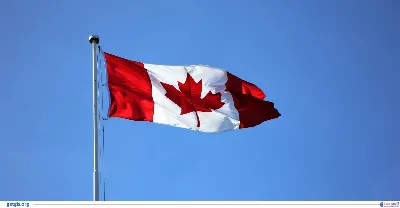IRCC Says 292,000 Permits for Undergraduate and College Students Will Be Granted
Updated On
-
Copy link
According to Canadian Minister Marc, approximately 292,000 study permits are available this year for college and undergraduate students.
Canada's Immigration Minister Marc Miller has revealed that there are approximately 292,000 study permits available for college and undergraduate international students for 2024.
According to Canadian Immigration Minister Marc Miller, 292,000 college and undergraduate student visas will be granted in 2024. Immigration, Refugees and Citizenship Canada (IRCC) set a maximum of about 360,000 students for the total number of study permit applications that will be granted this year on January 22.
By lowering the total number of study permits that are granted by 35% over two years, the cap seeks to halt the "unsustainable growth" of Canada's program for international students. The IRCC added that it will strengthen the integrity of the system.
How many permits will be issued in 2024?
Canadian daily The Globe and Mail reports that the IRCC has explained that their forecast of 360,000 new research permits awarded in 2024 included cap-exempt permits. As a result, this year's approval rate for new undergraduate study permits at colleges and universities will only be 292,000.
However, the immigration minister can only limit the amount of applications that the IRCC processes; therefore can't control the total number of visas that are approved.
The Minister's remarks at the most recent Standing Committee on Citizenship and Immigration (CIMM) meeting pointed out that “I can only cap the applications and not the actual issuance of visas,” he said. “The way it works through the math is that we assume a level of acceptance and rejection at our level, and it churns out a bunch of visas. What we did was cap the intake at a certain level then we distributed it generally by population across Canada.”
The Minister's directive to limit application processing to 606,250 permits, excluding primary, secondary, master's, and doctorate programs, would result in 360,000 approved study permits in 2024.
In contrast, the most recent report from the Globe and Mail states that the IRCC plans to approve just 292,200 new undergraduate and college study visas.
IRCC grants provincial governments the authority to implement the study permit cap, requiring provinces to issue Provincial Attestation Letters to international students authorized to study at a designated institution.
Study permit applicants now require both a letter of acceptance (LOA) and a PAL to apply to IRCC, with allocations based on population. British Columbia and Alberta have announced PAL systems, delivering students through their DLIs.
The federal government has set a deadline of March 31, 2024, for the province governments to create and put into place their PAL systems.
Also Read: The Guide to International Students in Canada - What's New?
Begin Your Career in Canada
Canada is a hub for career opportunities. GetGIS provides thorough support with our job seeker visas if you intend to apply for PR visas. Our team of professionals will offer you complete assistance, from the first consultation to the last phases of the application procedure. Book a free consultation right now!
FAQs
1. How many permits will be approved by IRCC?
IRCC plans to approve 292,200 new undergraduate and college study visas.
2. What is a study permit approval letter for Canada?
Foreign nationals are permitted to study at designated learning institutions (DLIs) in Canada with the use of a document known as a study permit.
3. Is the study permit and student visa the same?
A student Visa is a conditional authorization, while a Study Permit grants the right to stay in a country.
4. Will Canada’s study permit cap affect master’s or PhD students?
Foreign students seeking graduate degrees, such as master's or doctorate degrees, are currently not subject to provincial and federal study permission caps. Only undergraduate programs offered by Canadian colleges and universities—including bachelor's degree, certificate, and diploma programs—will be subject to the caps.
5. What are the new rules for students in Canada 2024?
Starting September 1, 2024, international students in private colleges with licensed curricula will not qualify for post-graduation work opportunities, while Canadian master's program graduates can now benefit from three-year PGWPs.




